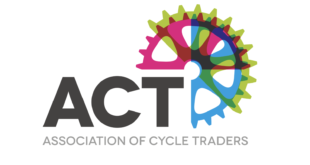Using non-regulated Buy Now Pay Later (BNPL) services can be like “slipping into quicksand”, a charity has warned, with the Treasury launching a consultation into bringing the sector under regulation.
Many BNPL products are becoming increasingly popular among Gen Z’s and Millennials – it is offered widely online by fashion retailers, allowing shoppers can split payments at checkouts or pay 30 days later interest-free. However, the growing levels of debt being created by these unregulated payment services have been an increasing cause of alarm for some time now, with concerns raised among over 70 MPs, MoneySavingExpert.com founder and TV presenter Martin Lewis OBE and a multitude of debt charities.
Consistent campaigning has now led to the Treasury launching a consultation into bringing the sector under regulation. The Treasury said that the consultation “sets out policy options to achieve a proportionate approach to regulation of BNPL”.
Martin Lewis, founder of MoneySavingExpert.com, summarised the issue by saying retail finance “isn’t automatically a bad thing to do” and that when done right it “can be a useful tool to help people spread costs”.
The ACT’s Ride it away retail finance scheme (not BNPL) applications are now experiencing similar growth patterns as seen prior to Covid-19. Furthermore, underlying trends prove that when customers want to purchase a higher-priced item that retail finance is an attractive payment method. In April and May 2020, 80,000 people applied for retail finance on the Ride it away scheme alone.
It is key for retailers to source providers that are correctly regulated and undertake credit checks on any potential customers to ensure that they can comfortably pay off any debts.
In February, an in-depth report was undertaken by The Woodlard Review, which found use of BNPL services had quadrupled in 2020 and that one in ten customers had existing debt arrears. The report called for BNPL firms to perform affordability checks on shoppers and ensure customers are treated fairly, particularly those struggling with repayments.
Chris Woolard, who led the FCA review recommending regulation, said that although BNPL was convenient for some people, for others it was “a really easy way to fall into problem debt”.
The report shows that BNPL services were used by five million people in the UK for total sales of £2.7 billion in the last year. Following the report, the FCA said it would be easy to build up unseen debts of £1,000.
“BNPL borrowing can be like quicksand – easy to slip into and very difficult to get out of,” said Citizens Advice director of policy Matthew Upton. “We’ve helped many who have slipped into trouble, including one sent a debt collection letter over a £10 purchase. Another relies on BNPL to buy things such as their children’s school uniform, but cannot afford the repayments.
“Over half of young people who have used BNPL in the last year struggled to make a repayment.”
The newly launched consultation states that consumers should be adequately and fairly protected from detriment, and be able to access dispute resolution regarding the conduct of lenders.
The Government is seeking views on where it should draw the boundary for regulation of BNPL products, also bearing in mind other types of short-term credit. It also wants to know whether people believe current requirements on BNPL merchants and lenders around advertising and promotion are sufficient.
This lack of FCA regulation has created concerns about inconsistencies with how BNPL agreements are reported on people’s credit files. There is no obligation for providers to conduct creditworthiness assessments as part of taking on new customers or when entering into individual agreements, the consultation document said. The Government wants to hear views on the role of creditworthiness assessments as part of a proportionate approach to regulation.
Peter Tutton, StepChange head of policy, research and public affairs, said: “We hope the introduction of regulation can be implemented at pace, given the rapid rise of BNPL.”
The ACT, member of the Independent Retailers Confederation (IRC), has previously raised concerns about the improper regulation of BNPL providers such as Klarna, Openpay and LayBuy and the risks that they bring to potential customers.
Some debt charities argue that it is the retailer’s responsibility to educate their customers of the risks being undertaken when committing to any BNPL payments. With a retailer’s reputation at stake, as well as the wellbeing of their customers, it is imperative that businesses find a finance provider that they can trust and that is correctly regulated by the FCA.
The ACT has created a mini-series, Choosing the right finance provider, avoid the pitfalls, which assists retailers by highlighting what to look out for when choosing the right finance provider for you.
Retail Finance Training, brought to you by Indie Retail Training, is a distance learning course ensuring your business sells using finance effectively and compliantly. This course is designed for all owners and employees in a business that either currently, or plans to, offer retail finance as a payment method.
The course will teach you how to legally promote and use retail finance in-store, online and in all other forms of media. As well as covering the legal details, this course also aims to make sure you maximise each sale using retail finance.

You can sign up and access a demo of the training site for free: https://demo.indieretail.training.
For the full course, ACT members receive preferential pricing with up to 50% off. Find out more here.
 BikeBiz Bicycle and cycling retail news
BikeBiz Bicycle and cycling retail news




